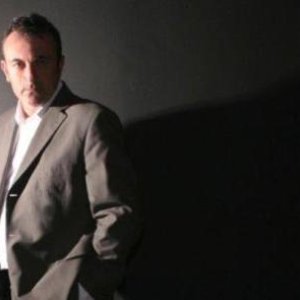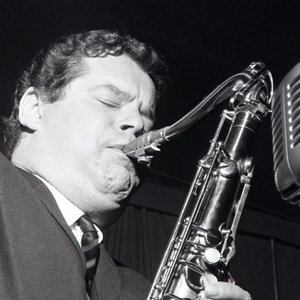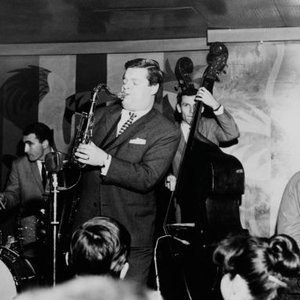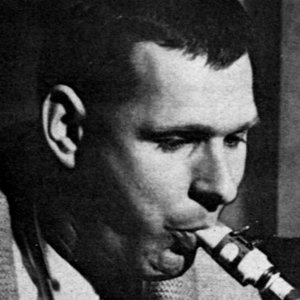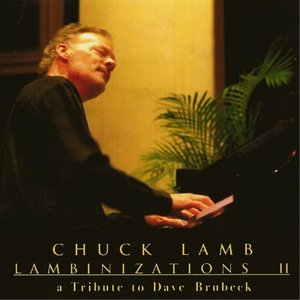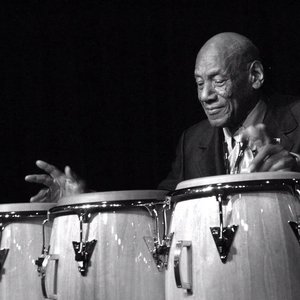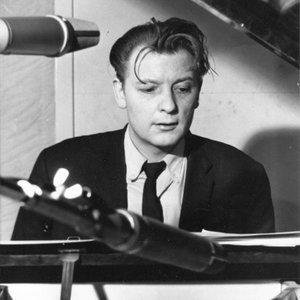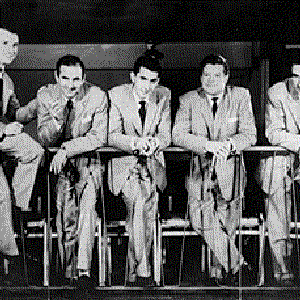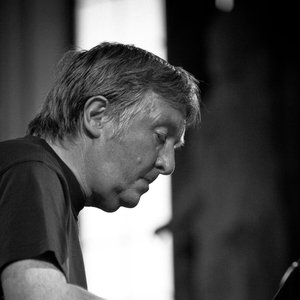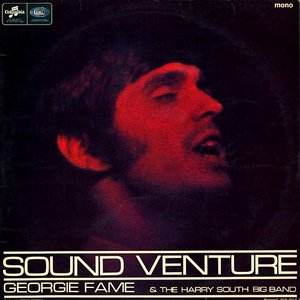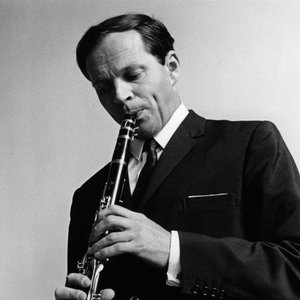Biography
-
Born
28 January 1927
-
Born In
Aldgate, Tower Hamlets, London, England, United Kingdom
-
Died
23 December 1996 (aged 69)
Ronnie Scott (28 January 1927 – 23 December 1996) was an English jazz tenor saxophonist and jazz club owner.
Ronnie Scott (originally Ronald Schatt) was born in Aldgate, east London, into a family of Russian Jewish descent on his father's side, and Portuguese antecedents on his mother's. Scott began playing in small jazz clubs at the age of sixteen. he toured with Johnny Claes, the trumpeter, from 1944 to 1945, and with Ted Heath in 1946, as well as working with Ambrose, Cab Kaye, and Tito Burns. He was involved in the short-lived musicians' co-operative Club Eleven band and club (1948–1950), with Johnny Dankworth and others, and was a member of the generation of British musicians who worked on the Cunard liner Queen Mary (intermittently 1946–c. 1950) in order to visit New York and hear the new music directly. Scott was among the earliest British musicians to be influenced in his playing style by Charlie Parker and other bebop musicians.
In 1952 Scott joined Jack Parnell's orchestra, then led his own nine-piece group and quintet featuring among others, Pete King, with whom he would later open his jazz club, Victor Feldman, Hank Shaw and Phil Seamen from 1953 to 1956. He co-led The Jazz Couriers with Tubby Hayes from 1957 to 1959, and was leader of a quartet including Stan Tracey (1960–1967).
During this period he also did occasional session work; his best-known work here is the solo on The Beatles' "Lady Madonna". He was said to be upset at the amount of his saxophone that made the final cut on the original record.
From 1967–69, Scott was a member of The Kenny Clarke-Francy Boland Big Band which toured Europe extensively and which also featured fellow tenor players Johnny Griffin and Eddie "Lockjaw" Davis, at the same time running his own octet including John Surman and Kenny Wheeler (1968–1969), and a trio with Mike Carr on keyboards and Bobby Gien on drums (1971–1975). He then went on to lead various groups, most of which included John Critchinson on keyboards and Martin Drew on drums.
Ronnie Scott's playing was much admired on both sides of the Atlantic. Charles Mingus said of him in 1961: "Of the white boys, Ronnie Scott gets closer to the negro blues feeling, the way Zoot Sims does." Despite his central position in the British jazz scene, Scott recorded infrequently during the last few decades of his career. He suffered periods of depression and, while recovering slowly from surgery for tooth implants, died at age 69 from an accidental overdose of barbiturates prescribed by his dentist.
He was cremated at the Golders Green Crematorium.
Scott is perhaps best remembered for co-founding, with former tenor sax player Pete King, the Ronnie Scott's Jazz Club, which opened on 30 October 1959 in a basement at 39 Gerrard Street in London's Soho district, with the debut of a young alto sax player named Peter King (no relation), before later moving to a larger venue nearby at 47 Frith Street in 1965. The original venue continued in operation as the "Old Place" until the lease ran out in 1967, and was used for performances by the up and coming generation of domestic musicians.
Scott regularly acted as the club's genial Master of Ceremonies, and was (in)famous for his repertoire of jokes, asides and one-liners. A typical introduction might go: "Our next guest is one of the finest musicians in the country. In the city, he's crap".
After Scott's death, King continued to run the club for a further nine years, before selling the club to theatre impresario Sally Greene in June 2005.
Selected band line-ups:
As well as participating in name orchestras, Scott led or co-led numerous bands featuring some of Britain's most prominent jazz musicians of the day.
Alan Dean's Beboppers
1949
Ronnie Scott (ts), Johnny Dankworth (as), Hank Shaw (tp), Tommy Pollard (p), Pete Chilver (g), Joe Muddel (b), Laurie Morgan (d), Alan Dean (vocal).
Ronnie Scott Orchestra
- 1954, 1955
Ronnie Scott (ts), Derek Humble (as), Pete King (ts), Hank Shaw (tp), Ken Wray (tb), Benny Green (bs), Victor Feldman (p), Lennie Bush (b), Phil Seamen (d).
Ronnie Scott Quintet
- 1955
Ronnie Scott (ts), Hank Shaw (tp), Victor Feldman (p), Sammy Stokes/Lennie Bush (b), Phil Seamen (d).
Ronnie Scott Big Band
- 1955
Ronnie Scott, Pete King, (ts), Joe Harriott, Doug Robinson (as), Benny Green (bs), Stan Palmer, Hank Shaw, Dave Usden, Jimmy Watson, (tp) Jack Botterill, Robin Kaye, Mac Minshull, Ken Wray (tb), Norman Stenfalt (p), Eric Peter (b), Phil Seamen (d).
The Jazz Couriers
Ronnie Scott (ts), Tubby Hayes (ts, vib), Terry Shannon (p), Phil Bates (b), Bill Eyden (d).
(On 7 April 1957, The Jazz Couriers co-led by Tubby Hayes and Ronnie Scott, debuted at the new Flamingo Club in Wardour Street, Soho. The group lasted until 30 August 1959).
Ronnie Scott Quartet
(1964)
Ronnie Scott (ts), Stan Tracey (p), Malcolm Cecil (b), Jackie Dougan (d).
Ronnie Scott Quintet
(1990)
Dick Pearce (tp), Ronnie Scott (ts), John Critchinson (p), Ron Mathewson (b), Martin Drew (d).
Selected discography
1948: Boppin' at Esquire (indigo)
1958: The Couriers of Jazz! (Carlton/Fresh Sounds)
1965: The Night Is Scott and You're So Swingable (Redial)
1965: When I Want Your Opinion, I'll Give it to You (Jazz House)
1969: Live at Ronnie Scott's (Columbia)
1977: Serious Gold (Pye)
1990: Never Pat a Burning Dog (Jazz House)
1997: If I Want Your Opinion (Jazz House)
1997: The Night Has a Thousand Eyes (Jazz House)
2000: Boppin' at Esquire (Indigo)
2002: Ronnie Scott Live at the Jazz Club (Time Music)
Artist descriptions on Last.fm are editable by everyone. Feel free to contribute!
All user-contributed text on this page is available under the Creative Commons Attribution-ShareAlike License; additional terms may apply.


